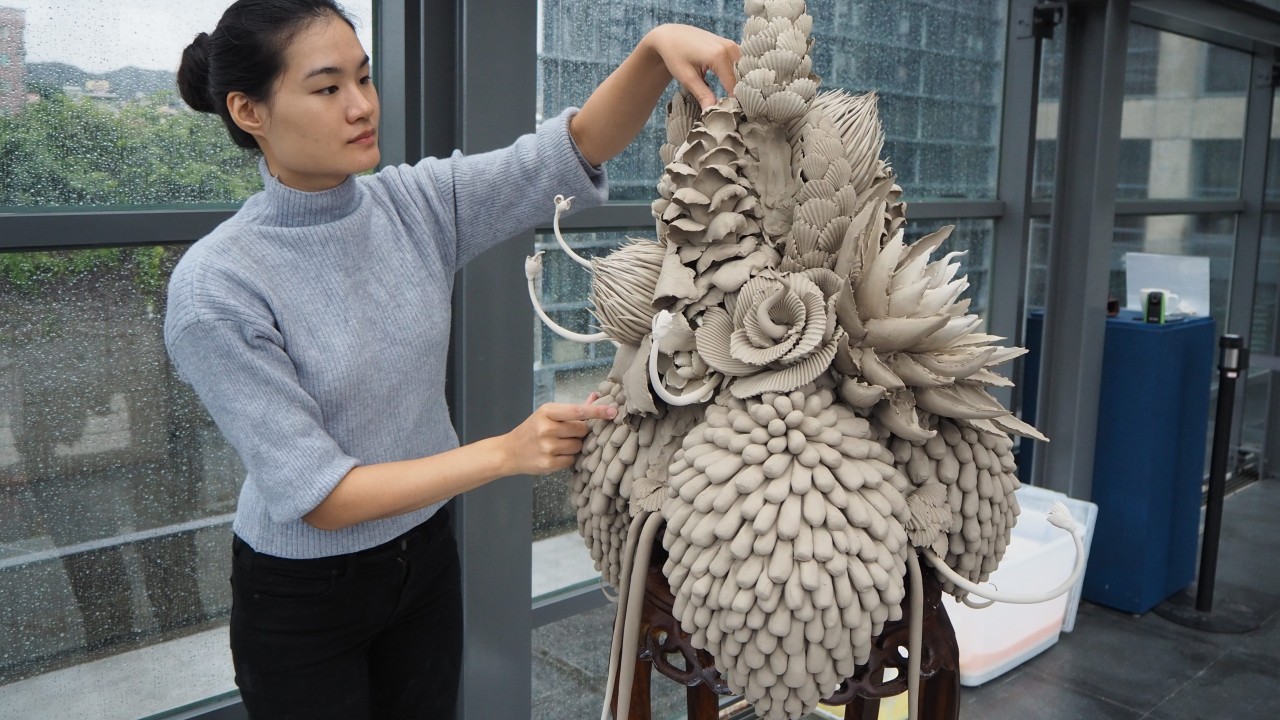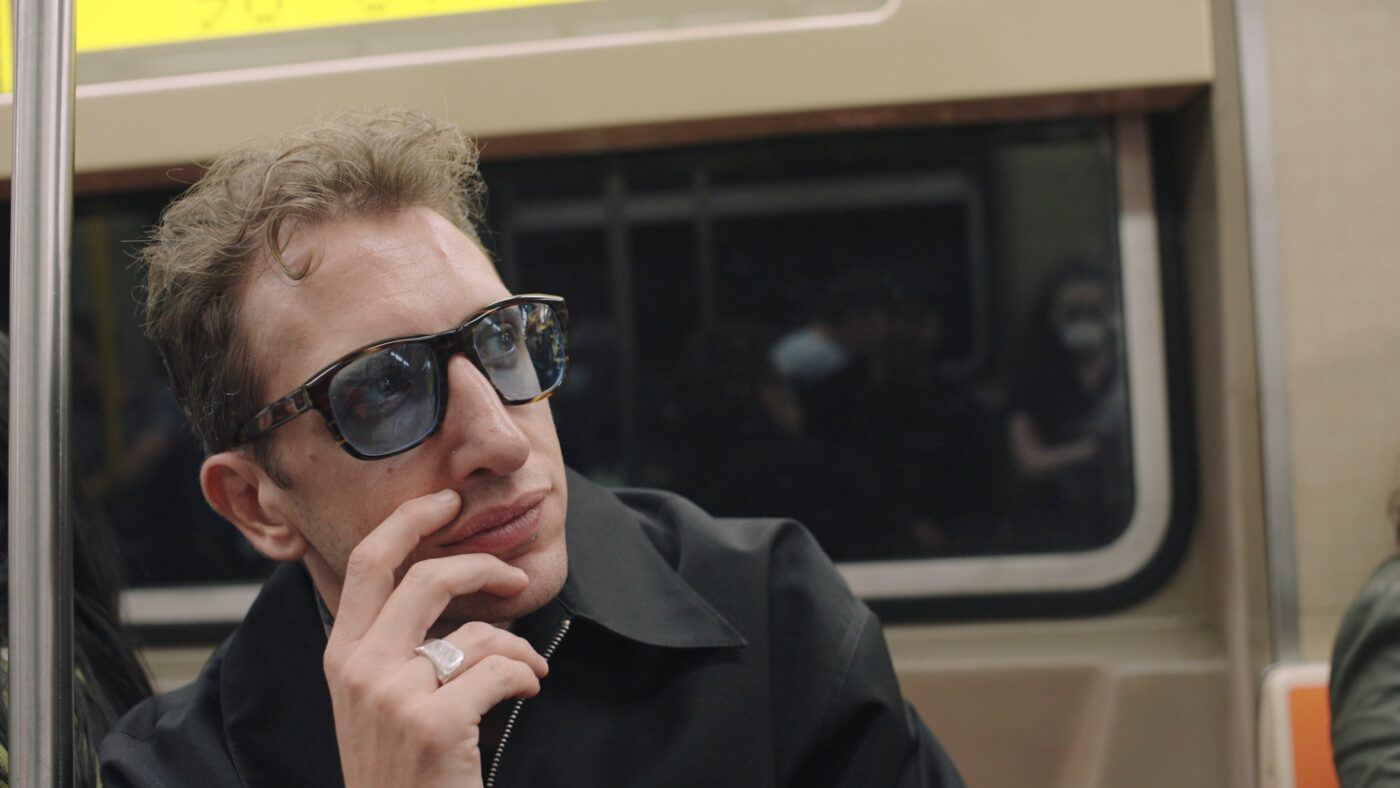Rubber Coated Steel
2016 - Film & Video (Film & Video)
21 min 49
Lawrence Abu Hamdan
In May 2014, Israeli soldiers shot and killed two teenagers, Nadeem Nawara and Mohamad Abu Daher in occupied Palestine (West Bank). Through the Forensic Architecture program, the human rights organization Defence for Children International worked with Abu Hamdan to investigate the incident. The case hinged upon an audio-ballistic analysis of the recorded gunshots to determine whether the soldiers had used rubber bullets, as they asserted, or broken the law by firing live ammunition at the two unarmed teenagers. A detailed acoustic analysis, for which Abu Hamdan used special techniques designed to visualize the sound frequencies, established that they had fired live rounds, and moreover had tried to disguise these fatal shots to make them sound as if they were rubber bullets. These visualizations later became the crucial piece of evidence that was picked up by the news channel CNN and other international news agencies, forcing Israel to renounce its original denial. The video Rubber Coated Steel is the main part of the installation Earshot commissioned by Portikus. Shot in an indoor shooting range, the piece is a staged enactment of a tribunal heard. The images presented are spectrograms: visualizations of the frequency spectrum of a given signal—in this instance, of the sounds of various projectiles. The spectrograms depict the timing, pitch, and loudness of projectiles ranging from a sound grenade across a rubber bullet to live ammunition fired from an M-16 rifle. The voice over reenacts the dialogues that have happened or could have happened at the tribunal. The video does not preside over the voices of the victims but rather seeks to amplify their silence, fundamentally questioning the relationship between truth and sound and the ways in which rights are being heard today.
What are the political implication of our sounds and voices? How is it heard and used for or against us? These are questions posed by Lawrence Abu Hamdan (b. 1985, Amman, Jordan) an artist and “private ear” currently based in Berlin. His work deals with the politics of listening through audiovisual installations, performances, graphic works, photography, Islamic sermons, cassette tape compositions, essays, and lectures. The artist’s research is also used in legal and human rights contexts. The artist’s forensic audio investigations Freedom of speech itself (2012) have been submitted as evidence in the UK immigration and asylum tribunal and most recently his research leading to Rubber Coated Steel (2016), which was part of the campaign for Defense for Children International.
Colors:
Related works sharing similar palette
» see more

© » KADIST
Shi Guowei
Through a hand-painting process, Shi Guowei created Manufactured Landscape ...

© » KADIST
Anthony Goicolea
2008Goicolea has made drawings based on a family album of relations that he did not know but who in one way or another contributed to his history and to the predicament in which he now finds himself as a Cuban in America...

© » SOUTH CHINA MORNING POST
Why these ephemeral clay artworks by ceramicist Ruth Ju-shih Li will crumble in front of your eyes | South China Morning Post Advertisement Advertisement Art + FOLLOW Get more with my NEWS A personalised news feed of stories that matter to you Learn more Taiwanese-Australian ceramicist Ruth Ju-shih Li installs an ephemeral clay artwork at the New Taipei City Yingge Ceramics Museum, in Taiwan, in 2019...
Related artist(s) to: Lawrence Abu Hamdan » Marwa Arsanios, » Iman Issa, » Maryam Jafri, » Jumana Manna, » Tom Nicholson, » Maha Maamoun, » Rajkamal Kahlon, » Runo Lagomarsino, » Young Arab Theatre, » Abu Hamdan
» see more

© » KADIST
Tom Nicholson
2012Tom Nicholson’s Comparative Monument (Palestine) engages a peculiar Australian monumental tradition: war monuments that bear the name “Palestine”...

© » KADIST
Runo Lagomarsino
2020On Fire by Runo Lagomarsino comprises twenty pieces of parchment, each of which has had the contours and map of Brazil burned in stages...

© » KADIST
Marwa Arsanios
2008Carlton Hotel project is the second part of a research on the Carlton, an iconic building of modernist architecture from the 1960s in Beirut...
Related works found in the same semantic group
» see more

© » KADIST
Adrían Balseca
2018The project Grabador Fantasma (Phantom Recorder) consists of a communally constructed technological device in Sarayaku ancestral territory...

© » ART21
Press Release: Art21 to Release First Film of 2024: “Lawrence Abu Hamdan: Politics of Listening” | Art21 Our Series Art in the Twenty-First Century Extended Play New York Close Up Artist to Artist William Kentridge: Anything Is Possible Specials Art21.live An always-on video channel featuring programming hand selected by Art21 Playlists Curated by Art21 staff, with guest contributions from artists, educators, and more Art21 Library Explore over 700 videos from Art21's television and digital series Latest Video 15:03 Add to watchlist Politics of Listening Lawrence Abu Hamdan Extended Play February 7, 2024 Search Searching Art21… Welcome to your watchlist Look for the plus icon next to videos throughout the site to add them here...

© » KADIST
Clarissa Tossin
2012In Fordlândia Fieldwork (2012), Tossin documents the remains of Henry Ford’s rubber enterprise Fordlândia, built in 1928 in the Brazilian Amazon to export cultivated rubber for the booming automobile industry...



